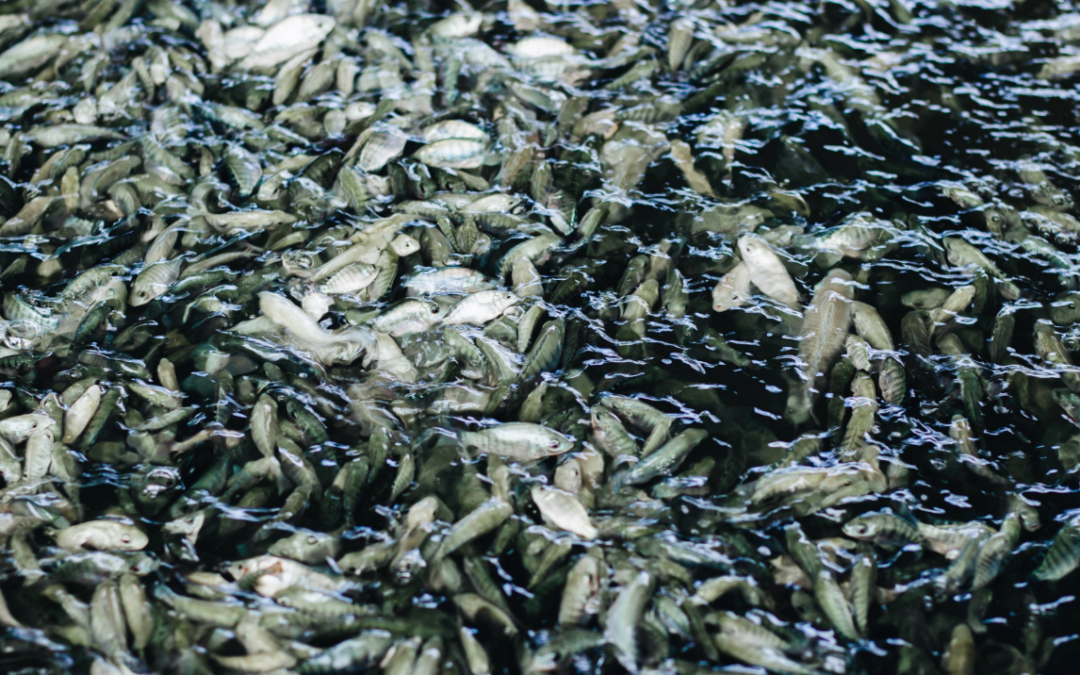
Certification for
Aquaculture Professionals
What is CAP?
The Certification for Aquaculture Professionals (CAP) program has been created with the main purpose of providing a solid foundation to professionals in the aquaculture industry throughout the world. It will be a tool for government agencies and privately owned companies to enable their personnel to acquire the necessary training to perform their tasks with a solid understanding of the factors that influence the production of aquatic animals and the techniques to manage these factors for sustainable aquaculture.
The Need
World demand for seafood continues to grow at unprecedented rates. According to the FAO, global aquaculture production must double by 2030 just to keep pace with demand. This represents an increase of almost 40 million tons in the next 20 years. The aquaculture industry is already one of the fastest-growing segments of agriculture in the world.
As aquaculture grows, so does the need for trained aquaculture professionals. Government agencies need aquaculture specialists who can evaluate, develop, and improve aquaculture projects. Aquaculture ventures need specialists with knowledge of current techniques and procedures. These professionals must be able to analyze economic, financial, biological, and ecological issues related to the industry.
In most countries around the world, especially those in tropical regions, there are not enough aquaculture specialists. The needs of governments and industry are not being fulfilled. Even worse, the potential economic opportunities of the industry are not being developed. This points to the need for a worldwide training and certification program to guarantee aquaculture professionals have this much-needed basic knowledge.
Auburn University’s School of Fisheries, Aquaculture, and Aquatic Sciences is recognized as a world leader in aquaculture education and training. Thousands of aquaculturalists have been trained through Auburn’s short-term and degree training programs. The department has now packaged these time-tested materials into an educational and certification program that will meet these critical needs.
We invite you to become part of this dynamic industry through Auburn University’s School of Fisheries, Aquaculture, and Aquatic Sciences web-based Certification for Aquaculture Professionals (CAP) program.
Course Info & Objective
The objective of this web-based training program is to provide training and certification for aquaculture professionals that allows them to excel in their jobs, with a deeper understanding of the environment, food safety, animal welfare, animal health and social responsibility. The program is principle-based so that it has application to all types of aquaculture operations around the world.
To start your Certification for Aquaculture Professionals (CAP) please follow:
Subjects Covered
Several subjects covering the fundamentals of aquaculture have been divided in modules. The complete certification consists of ten modules and a total of 136 segments with an average duration of 30 minutes each.
|
Module |
Professor |
Segments |
| Principles of Aquaculture | Leonard Lovshin | 10 |
| Water Quality | Claude E. Boyd | 16 |
| Physiology | Imad P. Saoud | 9 |
| Hatchery Management | Ronald Phelps | 20 |
| Aquatic Animal Nutrition | D. Allen Davis | 12 |
| Genetics and Breeding | Rex Dunham | 17 |
| Aquatic Health | Jeff Terhune / Karl Hayden | 17 |
| Aquaculture Production | Masser / Daniels / Veverica | 21 |
| Extension Methods | John Jensen | 5 |
| Aquaculture Economics | Terril R. Hanson | 9 |
| TOTAL | 136 |
At the end of each module, the student will be evaluated. A passing grade of 70% is needed to progress to the next module. The student who is not able to obtain the passing grade will be allowed to review the lectures again and retake the exam. In case of not being able to obtain a passing grade a second time; the student will have the option to take another test at an additional cost.
Practical Training
At this time, the CAP program is only available in an online format. We highly recommend that you contact your local extension agent to find practical training available in your area.
What does it cost?
Pricing varies per module. Discounts are available if modules are purchased in bundles. Please visit the course marketplace in order to view module pricing and bundle options, and to sign up for courses. The extension methods course is free and available at this link as well.

